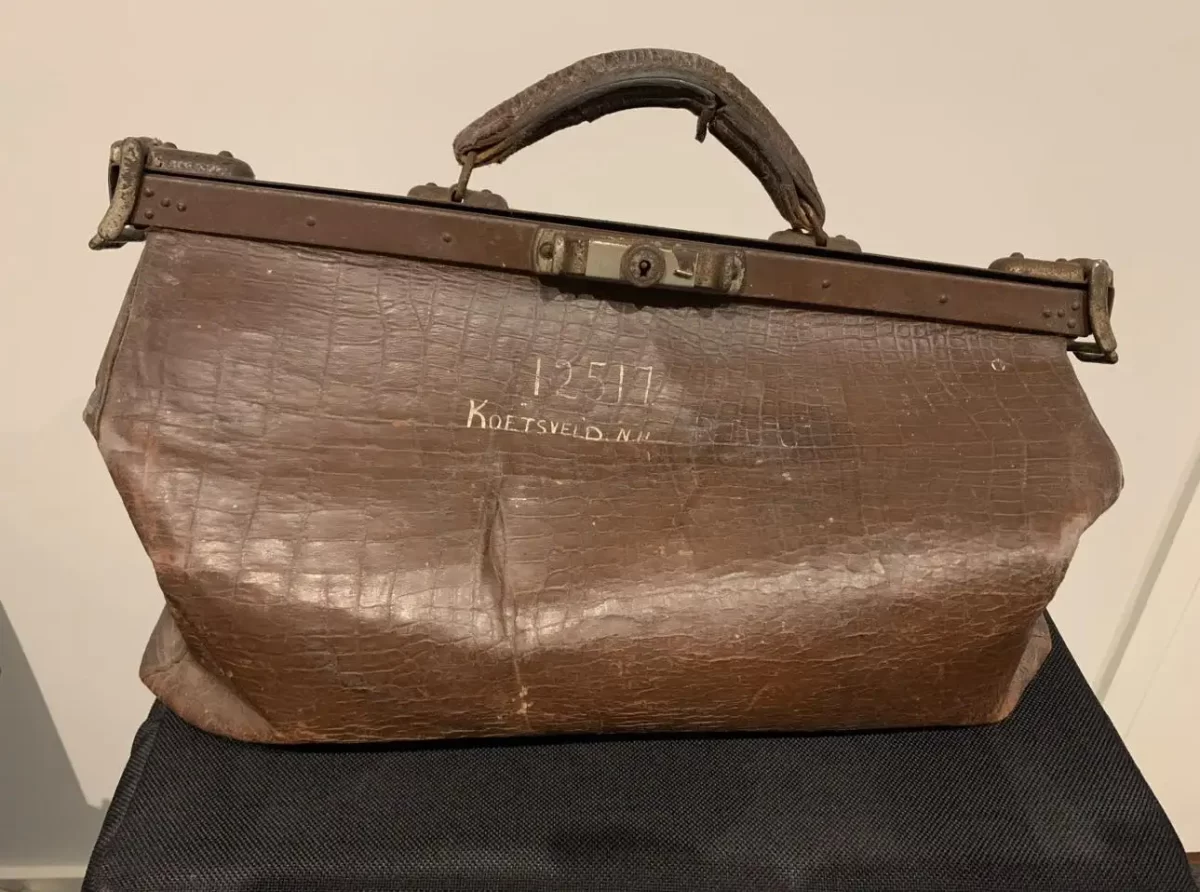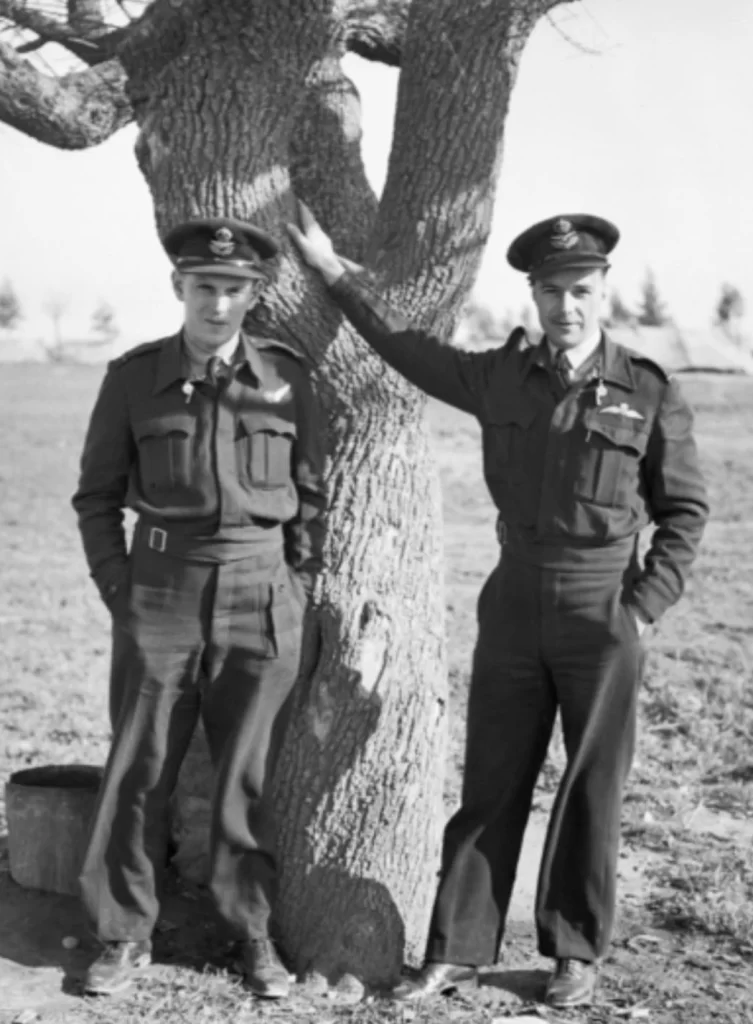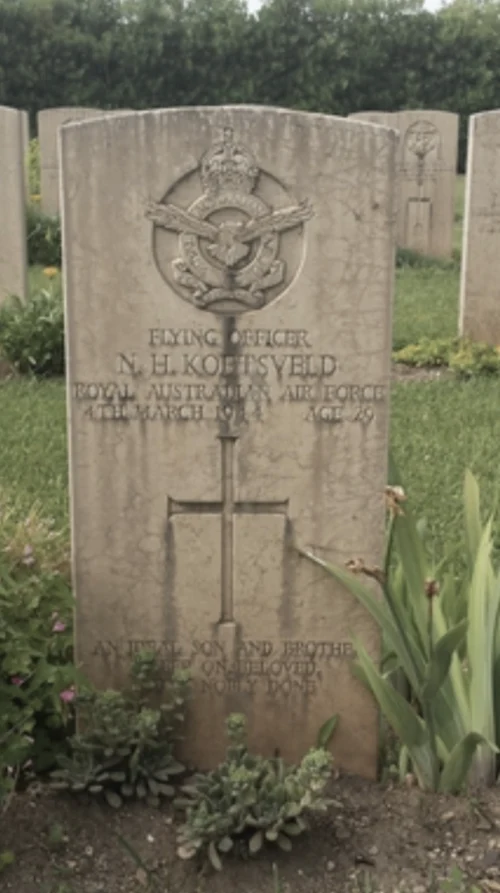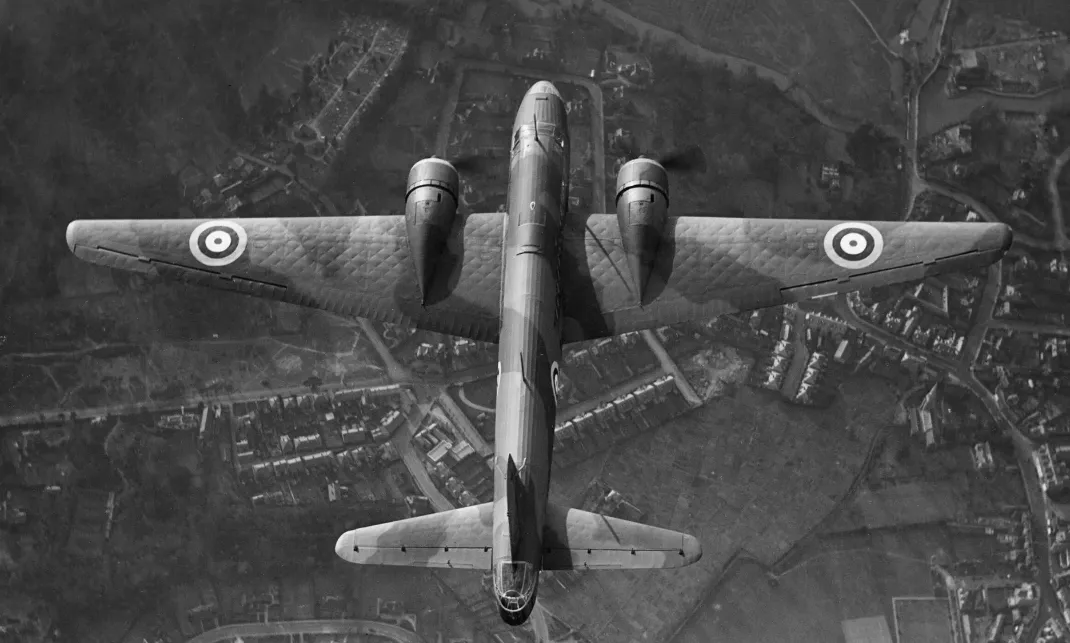By Dave White
Back in 2022 I spotted an old Gladstone Bag on a Facebook giveaway group in Sunbury.
The owner had bought the bag for a few dollars, and for some reason was under the impression its original owner was a railway employee. However, the first person to use this bag had written his name on the side, and a quick Google check gave me all the information I needed.
His name was Norman Koetsveld. He was born in 1914 in Melbourne and became an air force legend (my description). Prior to joining up he was a sales manager. Norman enlisted as a trainee mechanic, became an armourer, and subsequently air crew in 1942 – completing his training in the UK in 1943.
He started flying operations to Italy in 1944 with 142 (RAF) squadron operating from Amendola, in Italy. There were two amazing stories associated with his flying during the war.
With only one engine and one wheel, and part of the mainplane damaged, a Wellington bomber flew 400 miles across the sea and made a safe landing.
The Wellington bomber XHF537, piloted by flying officer Norman Koetsveld, of the Royal Australian Air Force, was being flown from England to North Africa.

“We were at 5,000 feet when the starboard engine overheated”, said Koetsveld. “It blew the starboard tyre, and one cowling and part of the fabric on the mainplane.
“Then the engine packed up. I opened up the port engine and we just managed to maintain height on the one engine, but we still had 400 miles of sea to cross.
“I contacted the station by radio, and had the landing field cleared, but I managed to land safely on one engine and one wheel.”
But his adventures in the Wellington bomber were not over. Five days later, when it took off on an air test, its rudders and elevators jammed. Koetsveld managed to free the elevators, and flew around for an hour and a half while a fitter cut holes in the fabric and tried unsuccessfully to free the rudders.

Then the starboard engine failed, but the pilot made a landing on one engine with the rudders jammed.
Unfortunately, as is often the case in war, his luck would not last. Norman died of his injuries when his Wellington crashed into high ground near Casteinuovo.
On that fateful night there were three other Wellington bombers to suffer a similar fate.
- Wellington HE584 was abandoned over Corsica, returning from Steyr Austria
- Wellington HE815 crashed in Italy, three killed, two hospitalised
- Wellington HF537 (the subject of this article) crashed in Italy, Flight officer N H Koetsveld and Sgt Foster were injured. Flight officer Rutter, Sgt Howard, and SGT Churcher were killed.
Koetsveld died of his injuries on 4 March 1944. All the fatalities were buried in Bari War Cemetery.
The target of the fateful raid was Daimler Puch in Styr. This company used slave labour from concentration camps. War time production included small arms, assault rifles, machine guns and aircraft engines.
Once I was aware of the importance of this Gladstone bag I contacted the RAAF base in Point Cook Victoria. I received the following reply to my enquiry:
“The bag would most certainly be a welcome addition to the Air Force Heritage Collection. I commend your generosity and intent to donate the bag to a National Collection for the greater benefit of visitors and researchers alike, as well as in memoriam to the greater sacrifice of FLGOFF Koetsveld.”




